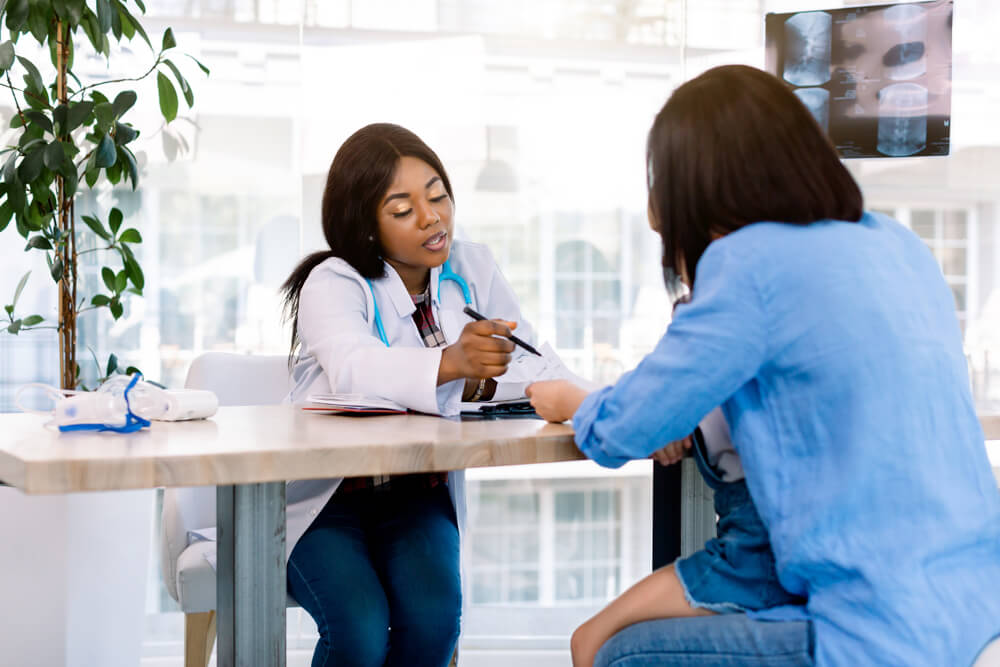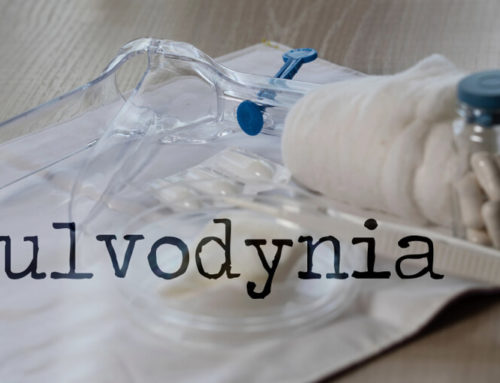Vulvar ulcers can be best described as sores on the vagina, specifically on the outer part of a woman’s genitalia. These ulcers or vulvar lesions may cause severe pain or produce no additional symptoms.
How are ulcers on the vulva treated? The experts from one of the best women’s health clinic in Hialeah, FL, have created this comprehensive guide on vulvar ulcers. Below, you will find valuable info on the symptoms and causes of genital sores, how they are treated, and how women can prevent these vulvar lesions from developing in the first place.
About Vulvar Ulcers
Experts usually define ulcers as slow-healing sores that will be typically found along the digestive tract. Still, in some cases, these lesions can develop in the genital area, like the vagina’s outer part (vulva), anus, and in the case of men, the penis.
Most of these genital sores are transmitted sexually, and they can affect your health in different ways.
Symptoms

Usually, these vulvar lesions may start like minor rashes or bumps. In other cases, these genital sores may look like tiny breaks in the skin, exposing tissue.
To be more precise, the symptoms of vulvar ulcers can vary greatly, but most often, they include the following signs:
- Itchiness
- Fever
- Discomfort
- Pain
- Discharge or leaky fluid
- Enlarged lymph nodes in the affected area
- Difficult or painful urination
On the other hand, there are cases when vulvar ulcers cause no apparent symptoms.
The Causes of Vulvar Lesions
As hinted above, vulvar ulcers are any type of open sores that may appear on the vulva. They may look like bumps or rashes that may open up or like lesions similar to spreading breaks in the vulvar skin. No matter how they look, they expose deeper tissue layers, which can often be uncomfortable.
Patients who visit their provider with vulvar ulcers will first undergo a few tests to see what causes the lesions in the first place. Generally, the causes behind these sores on the vagina are the following:
Sexually Transmitted Diseases
Infections or STDs may often lead to genital sores if left unaddressed. The most common sexually transmitted diseases that may lead to the development of these lesions may include chlamydia, herpes, and syphilis. Also, some patients may develop ulcers on the vulva due to HIV infections.
Fungal Infections
Yeast infections may also lead to the development of genital ulcers. On that end, it’s essential to know that yeast infections may occur even without sexual contact. Patients with a yeast infection may experience vaginal discharge, itching, and burning and may see vulvar lesions appearing.
Trauma to the Area
Rubbing the vulva or scratching it often may irritate the skin to the point where lesions or ulcers start forming. On the other hand, genital lice and other parasites may also bite the skin, causing itchiness and developing genital sores.
Autoimmune Illnesses
Some diseases may cause autoimmune responses or inflammation that may cause different skin reactions. These adverse reactions sometimes affect the genitals, leading to the developm/ent of lesions and sores.
Viruses
Any viral infection that may produce skin lesions may also affect the genital area, i.e., the vulva. For example, shingles and chickenpox can cause vulvar ulcers and lesions, just like on the rest of the skin.
Skin Reactions
The skin covering the vulva is pretty delicate, and some products that don’t cause any reactions on the rest of your skin may irritate that area. That said, if you’ve developed genital ulcers after switching to a new skincare product, you might want to consider going back to the brand or solution you’ve used beforehand.
Complications of Vaginal Sores
Nearly all vulvar legions or sores can lead to more complex health problems if left untreated. More specifically, untreated vulvar ulcers may lead to health complications such as:
- Inflammation
- Scarring
- Infections
- Additional sexually transmitted diseases
- Adhesions
Also, if the lesions are caused by an underlying condition to begin with, these untreated sores may even lead to more health concerns. For instance, untreated sexually transmitted diseases may lead to further complications if you get pregnant. On that end, conditions such as syphilis can lead to heart problems or permanent nerve damage.
Treatment for Vulvar Ulcers
Because many things can cause vulvar sores, treatment options may also differ from one another. For example, if the sores result from trauma or injury, the ulcers may heal on their own without any need for medical intervention. On the other hand, ulcers will most probably need to be addressed more carefully to avoid infections and other complications.
STD Treatments
Naturally, if the ulcers develop due to an STD, treating the disease will usually help with the ulcers as well. And because there are several different STD types, don’t experiment with self-medicating. Instead, reach out to an expert for the proper treatment. For instance, antibiotics are effective in treating chlamydia and syphilis, while you will need to take antiviral agents to treat HIV and herpes.
Antifungal Agents
You may receive a prescription for these compounds if a yeast infection causes your ulcers. On that end, there are some treatment options that you may get in the form of over-the-counter medication. Still, your doctor might recommend antifungal treatments if your ulcers result from chronic yeast infection problems.
Antihistamines
If the sores result from autoimmune problems or skin reactions, your provider may recommend a round of antihistamines that can help coin the immune response to the substances that caused the reaction in the first place.
Steps You Can Take
While addressing and treating the underlying cause, there are also a couple of steps you can take to ease the discomfort you may experience with ulcers. The following home remedies may help you manage the pain and the irritation:
- Using cool compresses
- Using petroleum jelly and other barrier ointments
- Using lidocaine and other topical anesthetics
- Taking anti-inflammatory drugs like ibuprofen
- Taking oral pain relievers
- Taking Epsom salt baths
- Avoiding products that may irritate the area, such as douches harsh, soaps, and other irritants
- Avoiding tight-fitting clothing for a while
Can You Prevent Vulvar Ulcers?

With proper sexual hygiene, you can easily avoid these vulvar lesions and sores. Since most of them result from sexually transmitted diseases, practicing safe sex and avoiding infections can help you prevent these sores completely.
So, to avoid contracting STDs, consider the following:
- Use dental dams or other barrier protection forms during sex, such as condoms.
- Get your HPV vaccine.
- Undergo regular STD testing.
- Ask new sexual partners about their STD history/status.
Also, having good general hygiene habits can keep your vulva healthy and clean. As such, you can avoid non-STI vulvar ulcers with the following:
- Steering clear from harsh or scented products that may irritate the skin around your genitals
- Staying hydrated
- Washing your vulva regularly with water and soap
- Avoiding wearing tight clothing frequently
- Regularly urinating after sexual intercourse
Learn More
Keeping the area clean and practicing safe sex is more or less all it takes to avoid lesions and ulcers on the vulva. With the right approach, genital ulcers can be easily prevented. Still, if you have any questions or concerns on the matter, feel free to visit Carreras Medical Center to learn more about the steps you can take.







